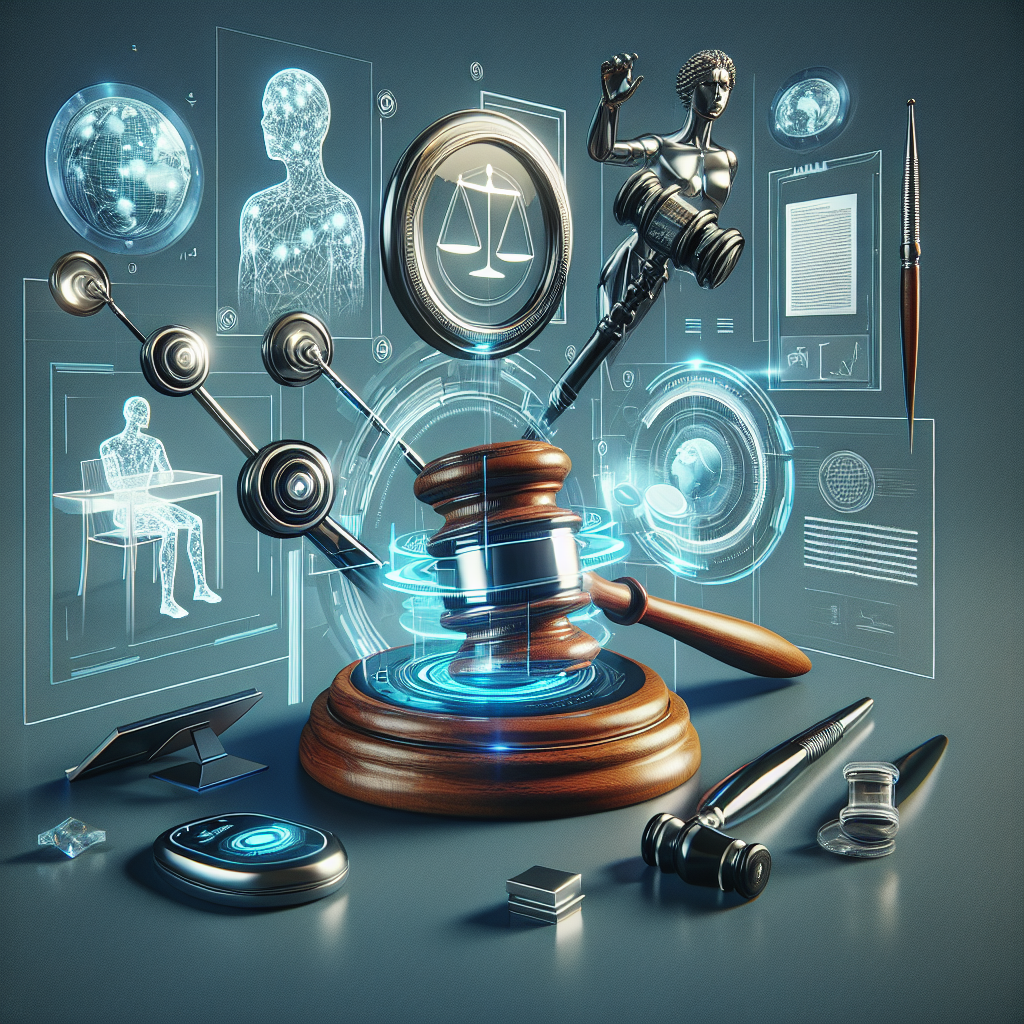AI-Powered Tools for Legal Dispute Resolution
Artificial Intelligence (AI) has revolutionized many industries, including the legal sector. One area where AI is making a significant impact is in legal dispute resolution. AI-powered tools are being used to streamline the legal process, improve efficiency, and ultimately help parties resolve their disputes in a more cost-effective and timely manner.
There are several AI-powered tools that are being used in legal dispute resolution. These tools leverage AI algorithms to analyze vast amounts of data, identify patterns and trends, and provide valuable insights to help parties in a dispute reach a resolution. Some of the key AI-powered tools that are being used in legal dispute resolution include:
1. Predictive Analytics: Predictive analytics is a powerful tool that uses AI algorithms to analyze past case outcomes and predict the likely outcome of a current dispute. By analyzing data from similar cases, predictive analytics can help parties understand the strengths and weaknesses of their case, evaluate potential risks, and make informed decisions about how to proceed.
2. Natural Language Processing (NLP): NLP is another AI-powered tool that is being used in legal dispute resolution. NLP technology enables computers to understand and analyze human language, allowing parties to input legal documents, contracts, and other relevant information into the system for analysis. NLP can help parties identify key issues, extract relevant information, and generate insights to support their case.
3. Case Management Software: AI-powered case management software is helping law firms and legal departments manage their caseload more efficiently. These tools can automate routine tasks, track deadlines and key dates, and provide valuable insights to help parties stay organized and on track throughout the dispute resolution process.
4. Online Dispute Resolution Platforms: Online dispute resolution platforms are using AI technology to facilitate the resolution of disputes online. These platforms provide a secure and user-friendly environment for parties to communicate, exchange information, and negotiate a settlement. AI algorithms can help parties identify common ground, explore potential solutions, and reach a resolution without the need for costly and time-consuming litigation.
5. Virtual Mediation and Arbitration Tools: Virtual mediation and arbitration tools are leveraging AI technology to conduct remote dispute resolution proceedings. These tools enable parties to participate in mediation and arbitration sessions from anywhere in the world, using video conferencing and other virtual communication tools. AI algorithms can help parties communicate effectively, manage conflict, and work towards a resolution in a virtual environment.
FAQs
Q: How accurate are AI-powered tools in predicting case outcomes?
A: AI-powered tools are becoming increasingly accurate in predicting case outcomes, thanks to advances in machine learning and predictive analytics. While no tool can guarantee a specific outcome, AI algorithms can analyze vast amounts of data and identify patterns that can help parties assess the strengths and weaknesses of their case and make informed decisions about how to proceed.
Q: Are AI-powered tools replacing human lawyers in legal dispute resolution?
A: AI-powered tools are not replacing human lawyers in legal dispute resolution, but rather complementing their skills and expertise. While AI technology can streamline the legal process and provide valuable insights, human lawyers bring critical thinking, judgment, and advocacy skills to the table that are essential in resolving complex legal disputes.
Q: How secure are online dispute resolution platforms that use AI technology?
A: Online dispute resolution platforms that use AI technology prioritize data security and confidentiality. These platforms use encryption, secure servers, and other security measures to protect sensitive information exchanged during the dispute resolution process. Parties can rest assured that their data is secure and protected when using AI-powered online dispute resolution platforms.
Q: Can AI-powered tools help parties in a dispute reach a settlement more quickly?
A: Yes, AI-powered tools can help parties in a dispute reach a settlement more quickly by streamlining the legal process, providing valuable insights, and facilitating communication and negotiation. By leveraging AI technology, parties can identify common ground, explore potential solutions, and work towards a resolution in a more efficient and cost-effective manner.
In conclusion, AI-powered tools are transforming legal dispute resolution by streamlining the process, improving efficiency, and helping parties reach resolutions more quickly and cost-effectively. These tools leverage AI algorithms to analyze data, identify patterns, and provide valuable insights that can help parties assess their case, evaluate risks, and make informed decisions. As AI technology continues to advance, we can expect to see even greater innovation in the field of legal dispute resolution, ultimately benefiting parties, lawyers, and the legal system as a whole.

